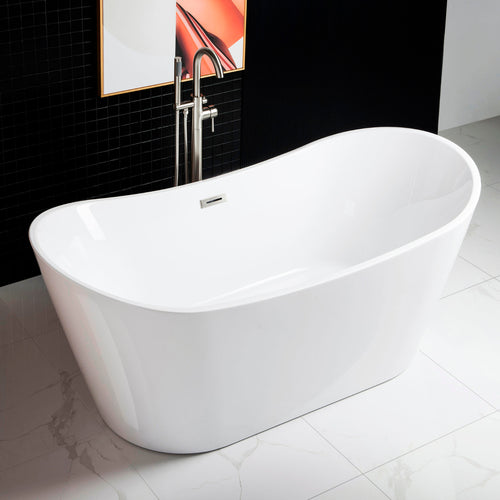
Soaking Tub Vs Standard Bathtub
1. Depth and Size
- Soaking Tub: Designed to allow full immersion of the body, these tubs are deeper than regular tubs, typically around 14-20 inches deep. This depth allows for a more relaxing and luxurious bathing experience.
- Regular Tub: Standard bathtubs are shallower, usually about 12-14 inches deep (drain to overflow). They are primarily designed for practical purposes like quick baths or showers.
2. Purpose and Design
- Soaking Tub: Focused on providing a spa-like experience, soaking tubs are built for relaxation and comfort. They often come in various shapes and styles, such as freestanding, clawfoot, or Japanese-style deep soaking tubs.
- Regular Tub: Regular tubs, including the whirlpool variety, are more utilitarian, designed for everyday use.
3. Materials
- Soaking Tub: Often made from higher-end materials like acrylic, cast iron, or stone to enhance durability and aesthetic appeal.
- Regular Tub: Typically made from standard materials like fiberglass or porcelain-coated steel, which are more affordable and practical for everyday use.
4. Features
- Soaking Tub: May include features like ergonomic designs, heated surfaces, and whirlpool or air jet options for added comfort and therapeutic benefits.
- Regular Tub: Those without whirlpool jets are generally simpler with fewer features, focusing on functionality rather than luxury.
5. Installation
- Soaking Tub: Often freestanding or designed for a specific, more intricate installation, which can be a focal point in bathroom design.
- Regular Tub: Usually installed against walls and integrated with a shower, making them more common in smaller or standard-sized bathrooms.

